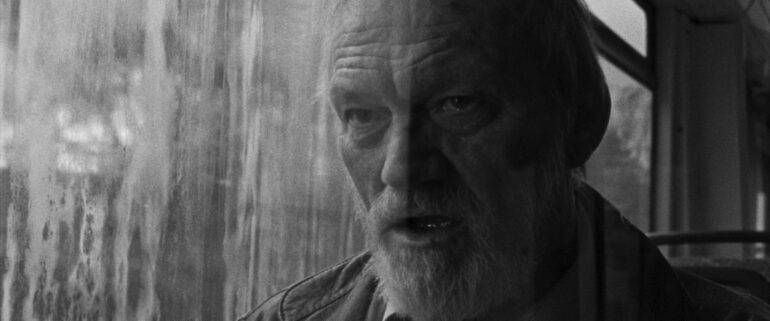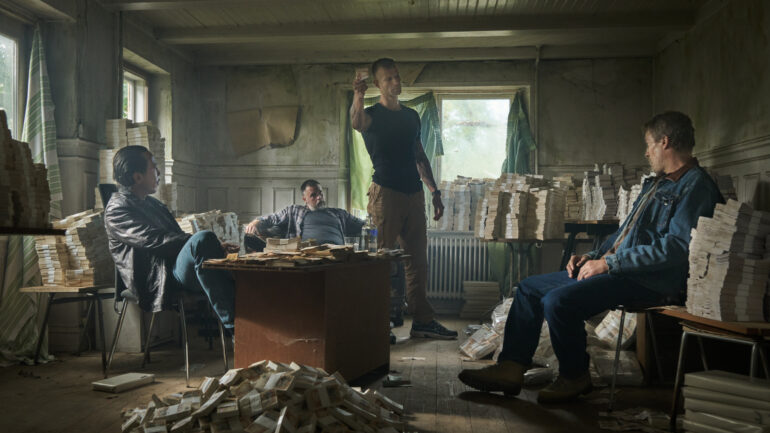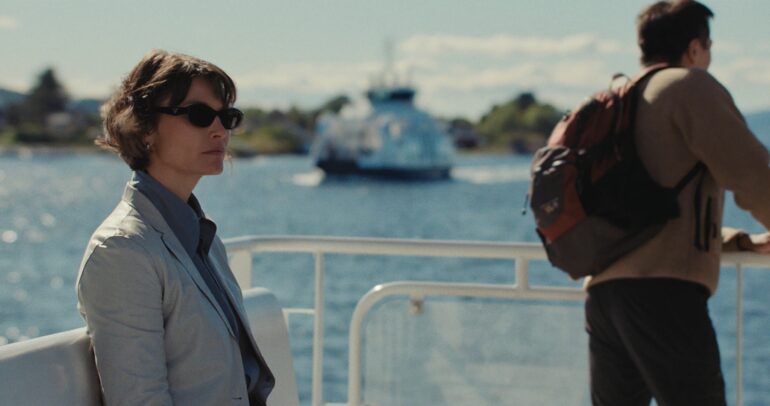WRITTEN BY: Davide Abbatescianni
The Icelandic filmmaker scooped the prize for Best Short with O, whilst Agnes Skonare Karlsson’s Favours earned a special mention.
Celebrating its 30th anniversary, the Vilnius International Film Festival (7–23 March) took over Lithuania’s capital and a dozen other cities.
With over 100 titles screened, the festival reaffirmed its position as a major cinematic gathering in the Baltic region and beyond. This year featured a notably robust Nordic presence, spanning both the official selection and its industry strand, Meeting Point Vilnius (MPV).
Among the standout achievements was the triumph of filmmaker Rúnar Rúnarsson, who took home the Best Short Film Award for O, an Icelandic-Swedish co-production world-premiered at Venice last year. The jury praised the film as “an achievement of classical cinematic language and a deep descent into the circles of addiction”, adding that they were “touched profoundly” by its emotional impact. The accolade, worth €3,000, is backed by the Vilnius City Municipality.
A special mention in the short film competition went to Swedish director Agnes Skonare Karlsson for Favours. The jury commended its “pacy rhythm and very intense dramaturgy”, and admired the pic’s capacity to provoke questions while showcasing strong direction and acting.
Beyond the awards, Nordic films were woven throughout the programme. Norway’s Silje Evensmo Jacobsen presented her acclaimed documentary A New Kind of Wilderness (Ukjent landskap), while Preemptive Listening by artist Aura Satz added an experimental edge (Finland/UK). The Nordic presence extended into animation with the shorts Running Lightsby Gediminas Šiaulys (Finland/India/Lithuania), and Downfall by Johan and Urtė Oettinger (Denmark/Lithuania), screened alongside the family-orientated flick Super Charlie by Jon Holmberg (Denmark/Sweden).
Meanwhile, Songs of the Slow Burning Earth, a documentary by Olha Zhurba (Denmark/France/Sweden/Ukraine), tackled a much more complex subject, immersing the viewers into the abyss of the first two years of Russia’s full invasion of Ukraine.
Other Nordic entries included the action-packed drama The Quiet Ones (De Lydløse) by Frederik Louis Hviid(Denmark) and Constructing an Island (Att skapa en ö) by Ebba Gustafsson (Sweden).t
The line-up also featured a wealth of international co-productions involving the Nordics, such as Ari Alexander Ergis Magnússon’s Epilogues (Belgium/Iceland/Norway), Ben Rivers’ Bogáncloch (Germany/Iceland/UK), and Suncana Brkulj’s Butterfly (Croatia/Denmark).
Further notable entries included Giedrė Žickytė and Maite Alberdi’s documentary I’m Not From Here (Yo no soy de aquí, Chile/Denmark/Lithuania), Luis Ortega’s Venice-premiered Kill the Jockey (El jockey, Argentina/Denmark/Mexico/Spain/USA), and Halfdan Ullmann Tøndel’s Cannes-bound Armand(Germany/Netherlands/Norway/Sweden).
Moreover, shorts with Nordic involvement included Cucumber (Agurk) by Harald Furuholmen (Japan/Norway), Sujipby Gintarė Parulytė (Lithuania/Luxembourg/Norway), Murmuring Hearts (Murmancios širdys) by Vytautas Puidokas(France/Lithuania/Norway), and Julie Keeps Quiet (Julie zwijgt) by Leonardo van Dijl (Belgium/Sweden).
MPV, the festival’s industry sidebar, hosted the pitch of a new Nordic production titled Solomamma and helmed by Norwegian director Janicke Askevold. Presented in the works-in-progress session on 17 March, the 95-minute dramedy follows 40-year-old journalist Edith, who embarks on a single motherhood via sperm donation. When her donor’s identity surfaces, she arranges to meet him under false pretences — posing as a journalist interested in his tech company. The encounter shakes up her life, and those around her.
The €1.2 million project, currently in production, is fully financed and seeking festivals and distribution partners. Askevold, a graduate of the Atelier Théâtral de Création in Paris, previously directed the no-budget debut Together Alone (Sammen Alene, 2021) and the short Le Contract (2020). She describes Solomamma as being inspired by real-life stories: “A friend of mine tracked down her son’s donor, found him on social media, and they ended up dating. It sparked the idea for a modern romantic dramedy rooted in contemporary ethical questions.”
Produced by Rebekka Rognøy, Magne Lyngner, Magnus Albertsen and Gary Cranner for Bacon Pictures Oslo and Bacon Picture Copenhagen, along with Gabija Siurbytė and Viktorija Rimkutė for Lithuania’s Dansu Film, and Inese Boka-Grube and Gints Grube for Latvia’s Mistrus Media. It was first pitched at Les Arc Film Festival in December, earlier this year at the Göteborg Film Festival, and screened a compelling excerpt during MPV, showcasing the moment Edith makes contact with the donor and visits him at his place.
On 19 March, the two juries – the first made up of Venice International Film Critics’ Week head Beatrice Fiorentino, Cottbus director Bernd Buder and mk2’s Jacques-Antoine Jagou, and the second composed of Canadian filmmaker Denis Côté, Berlinale programmer Barbara Wurm and Bendita Film Sales’ Jorge Blanch – handed out the MPV industry awards. Greta Griniūtė’s drama Independent Child received the Award for Best Lithuanian Project in Development and the Content Licensing Award, whilst Kate Tiuri’s Night Mayor scooped Best Project in Development (Ukraine).
This year’s Vilnius International Film Festival confirmed its dual identity as both a heartfelt celebration for the local community and an increasingly strategic launchpad for emerging European talent. With a diverse line-up blending Lithuanian titles, international festival hits, and more experimental works across fiction, non-fiction, and animation, the gathering continues to resonate with audiences across the country.
Meanwhile, its industry sidebar, Meeting Point Vilnius (MPV), is gaining significant traction as a vital scouting ground for productions from Northern and Eastern Europe. The presence of high-profile programmers from Sundance, Venice, Berlin, Locarno and beyond – including the aforementioned Fiorentino and Locarno’s artistic director Giona A. Nazzaro– underscores its rising influence. One-on-one meetings held on 18 March offered valuable visibility to the selected projects, consolidating MPV’s role as a key platform for new voices on the European circuit.
Besides, the Nordic footprint in Vilnius this year proved rich and multilayered, reflecting not only the region’s cinematic diversity, but also its growing appetite for collaboration and dialogue.


